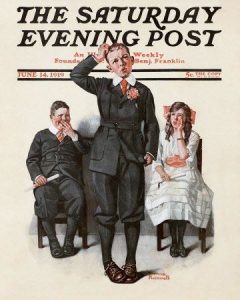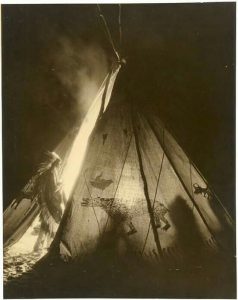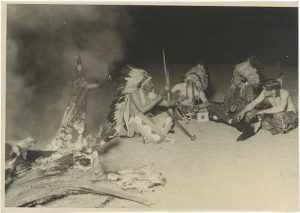
During the Progressive period, shifting perspectives on the issue of raising children were also in response to the downside of urbanization. Back to nature enthusiasts held that “modern living was the responsible for effeminate boys without character or abilities
To deal with the cultural anxieties, organizations like the Seton League of Woodcraft and Boy Scouts of America offered programming designed in response to the pitfalls of modern industrial life, encouraging a return to “primitive” ways. Seton and other back to nature supporters held that Native Americans were no longer a threat to white society and framed Native Americans as romanticized “noble savages”.
“They were part of a group of Indian fanciers who placed “Indians outside the temporal (and societal) boundaries of modernity” where they stood for the “authenticity and natural purity” that might under-gird a new modern identity.” (Hunhdorf)

The consensus of Seton and others was to get back to our American roots – “it was time toughen up like frontiersmen, hardy, self- sufficient individuals exposed and challenged by living in the rough wilderness – much like the “primitive savage” dependent on self for survival.” (Seton) It was thought that America’s pioneer spirit was vanishing due to the lack of competitiveness, as well as “the independent virility of the American Man.” (Deloria). “These organizations used “playing Indian as a rite of passage and when a child would grow up turn away and they would grow out of playing savage”(Vigal)
